- Home
- Alice Hoffman
At Risk Page 5
At Risk Read online
Page 5
“I’d better head home,” Sevrin says. “If I clean my room my dad may get me a new soccer ball.”
Charlie nods his approval, then rolls his bike over the curb.
“See you tomorrow,” Sevrin says. He turns his bike around and starts pedaling. “Hey, idiot,” he shouts when Charlie doesn’t say good-bye. “Adiós.”
“Adiós,” Charlie calls back.
Charlie pedals hard the rest of the way home. The wind is hot, but it feels good anyway. As he speeds past the Crowleys’ house and the Wagoners’, Sevrin is going just as fast in the other direction.
That afternoon the heat doesn’t let up, and at Pearson’s Animal Farm, where Ed Reardon and his wife, Mary, have taken the kids, thick dust rises up and gets into their hair and their clothes. Mary was the one who collected all the stale bread in the breadbox for the ducks and geese, but when they come to the petting zoo she says to Ed, “You go in with them,” and then she heads in the other direction so she can collapse on a bench in the shade.
Ed’s daughters beg for quarters so they can feed the baby llama with bottles. His son, Will, clings to his legs, frightened of the pygmy goats that run up and surround them, nuzzling and pushing, searching for bread.
“They can’t hurt you,” Ed tells his son.
Just to show Will how gentle the goats are, Ed reaches to pat one on the head and gets butted for his troubles. He picks Will up so he can toss bread down for the goats without fear of being trampled. In the shade, Mary undoes several buttons on her blouse and fans herself with her hand. Ed watches her, puzzled, then he realizes what he’s seeing. From this distance she looks displeased. Happiness has come easily to them, they haven’t had to struggle for it, but lately they’ve had silences, and these lapses make Ed suspicious of their happiness. He can tell Mary things that upset him terribly—as he did last night, when he mentioned Amanda Farrell’s disturbingly low white blood count and his decision to run a series of tests, tests whose positive results would be disastrous—and get no response whatsoever from Mary. Does she not listen to him? Has she heard so many stories about his patients that she simply tunes him out?
“Are you all right?” Ed asks Mary when the children have had enough of the petting zoo and are ready for the small carousel and the bumper cars.
“Of course I am,” Mary says. She pulls Will onto her lap and feels in his diaper to see if he needs a change. He was potty-trained for a week and has had a temporary setback.
Ed’s beeper goes off and he quickly reaches to turn it off.
“We’ll meet you at the carousel,” Mary says.
“Sorry,” Ed says. He says this every time he’s called away by his service.
“If I’m not used to it by now, I never will be,” Mary says, but still, Ed wonders. Sometimes he thinks that Mary blames him for his patients’ illnesses, that she half believes he uses his work as an excuse to get away from his own family.
Ed plans to make it fast and get back before the kids are off the carousel, but he has to search for a pay phone. Finally he spies one behind the refreshment stand. It’s three o’clock, nap time, and children all over Pearson’s Animal Farm are cranky, refusing to walk, demanding ice cream, being scolded by their parents. When he phones his service he’s told that the lab wants to speak with him directly. He has to search his pockets for change and he’s sorry now that he gave his daughters all his quarters. The phone feels too cold in his hand; the buttons stick as he punches in the number for the lab. He knows something is wrong, he can feel it by the way the air crackles with heat. Ed makes them repeat it twice: An organism called cryptosporidium has been found in Amanda’s stool sample. That’s what’s been causing her diarrhea, but Ed knows this is just an opportunistic disease. He feels dizzy even before he’s told that Amanda Farrell, whom he has seen through chicken pox, ear infections, and inoculations, as well as a broken arm and a worrisome appendectomy, has tested positive for AIDS. Ed Reardon, a graduate of Harvard Medical School, who completed both his internship and residency at Children’s Hospital in Boston and who has been in private practice for twelve years, sits down on the ground behind the refreshment stand that serves lemonade and popcorn.
He doesn’t plan to move for a long time.
That night is quiet, there is no longer the chorus of katydids that rang through the air all summer. The heat breaks suddenly, at midnight; a thread of thin, milky clouds makes a ring around the moon. It’s amazing that nightmares don’t travel through a town the way chicken pox does, swept through open windows, slipping around the corners of doors left ajar.
Ivan loves cool weather, so he gets a particularly good night’s sleep and the next morning he’s at the institute before nine. The institute is in a small house directly across from the town green, a circle of grass bordered by hostas and late-blooming lilies, which was once used as a communal grazing area. Out by the marsh, near Red Slipper Beach, is the domelike building that houses the telescope. Charlie now takes the huge telescope for granted, but Ivan can remember the amazed look on Charlie’s face when he first saw the ceiling open to reveal the sky. Usually, Ivan drives down to Red Slipper Beach once a night, although lately the graduate students have been doing most of the viewing as the astronomers prepare their papers. Ivan has a lot of preparing to do before the Orlando conference. His particular interest is the supernova, and one has just occurred. Actually, it occurred one hundred seventy thousand years ago, but it has just now been sighted over South America. Ivan can’t help wondering whether, if he were affiliated with MIT or Stanford instead of the poorly funded institute, he might be in Chile right now, instead of getting information secondhand at the conference. Ivan is not used to feeling dissatisfied and it eats at him. There are four astronomers at the institute, five graduate students, and two secretaries. He has always liked the intensity of the place, the smallness. Now he wonders if perhaps he hasn’t settled for second best.
When he was young, Ivan seemed like an affable, even-tempered boy, but he wasn’t. From the time he was ten he had two plans of action: to become a scientist and to get out of New Jersey and away from his family. He still considers his acceptance to MIT his salvation. Both of his parents are dead, but his two sisters, Ilene and Natalie, still live in Fairlawn. They see each other every weekend, and Nat and her family live in the big brick house where they grew up. Ivan knows they talk about him—he overheard a remark in the kitchen of the old house after his father’s funeral. Actually, it was Polly they were blasting, because she wore no makeup and no jewelry other than her wedding ring, but it might as well have been a direct attack upon Ivan. What it comes down to, Ivan knows, is that he and his sisters grew up in the same house but have always inhabited different worlds.
They still cannot understand what Ivan does for a living, or why he does it. How they can be made from the same genetic material and be so completely different is more of a mystery to Ivan than any riddle in this galaxy or any other. And maybe that’s why Charlie brings him such pleasure. Not that Ivan loves one of his children more than the other, but Charlie is like him. He cares about clouds and constellations; he may not listen when he’s told to clean his room, but he always listens to the sound of crickets in the tall grass, he never fails to keep watch for changes in the sky.
Ivan is at his desk before any of his colleagues, with a hot cup of coffee and a buttered roll he picked up on the way. He is looking at the data from their computer, tied into NASA, when the phone rings. He doesn’t bother to answer until one of the secretaries, Monica, buzzes him, and then he knows it’s for him. He guesses that it’s Polly, calling to remind him of something he’s forgotten—he’s been doing a lot of forgetting these days—but it’s a man’s voice, one he doesn’t recognize.
“It’s Ed,” the voice tells him.
“Ed,” Ivan repeats, and it takes him a moment before he can place this Ed as the kids’ doctor.
“I’d like you to come in this morning,” Ed says.
Ivan wonders if they owe Dr.
Reardon for the kids’ last checkup. He knows he paid the mortgage this month, and the electric company, but more than that he cannot remember.
“How about ten?” Ed says.
“The hell of it is,” Ivan says, “I’ve got a paper to finish before Friday. Have you tried Polly? She’s got the checkbook anyway.”
All morning, Ed has been telling himself it would be easier to tell Ivan alone, without Polly; a scientist could better accept the random path of a virus. Now he knows he’s been kidding himself. No one can accept the indiscriminate order of cruelty. No one can even begin to explain it, and yet this is exactly what he has to try to do.
“How about ten-thirty?” Ed Reardon presses.
“Come on, Ed,” Ivan kids him. “Don’t you think I’m a little old for your practice?”
There is silence on the other end of the wire. Ivan can hear his own heartbeat.
“All right,” Ivan says. “I’m leaving now.”
He tells Monica he’ll be back after lunch, then stops into Max Lyman’s office and tells him he can’t play squash this week. It takes him less than fifteen minutes to get over to Reardon’s office. He tells the nurse, the blond one, that he’s here, and she quickly goes into the doctor’s office. Does he imagine that she looks uncomfortable? Does he imagine the edge of panic?
The waiting room is crowded. Ivan finds a space on the couch, but he feels too big for the room. He hasn’t been here with either of the kids for over a year, and he can’t quite remember whether that’s because the kids have been healthy or because Polly’s taken over that job. The first few years they’d been here constantly, with both Charlie and Amanda. Ear infections, mainly. For a while it seemed there wasn’t a month when one of the kids didn’t have one.
Ed Reardon comes out, walks right to him, and shakes his hand firmly.
“Let’s go into my office,” Ed says. He doesn’t let go of Ivan’s hand.
A toddler lets out a yelp as soon as she sees the doctor, and her mother holds her so she can’t run out of the office.
“I can see you’re a popular guy,” Ivan jokes.
Ed opens the door to his office and motions for Ivan to go in first. Ivan can feel himself being watched as he sits down in a chair facing the desk. And that’s when he knows something is wrong.
Later, as he drives home, Ivan will pull over to the side of the road, not far from where there are wild raspberries Polly and the children like to pick every summer. He has been crying since he left Ed Reardon’s office, but now he begins to howl. It is a terrifying sound. It comes from deep inside him, but it doesn’t seem to belong to him, he can hear it from the outside, as if it were somebody else’s pain. All the mornings when he could not wait to leave the house and get to the institute come back to him, the times when he was too tired to see who was crying in the middle of the night and sent Polly to check, the spilled milk, the annoying sound of cartoons on Saturdays, the vacations he and Polly have planned, just the two of them, so they could get away.
When the howling stops, Ivan sits motionless behind the steering wheel and he holds onto it. It crosses his mind that he should kill Ed Reardon. Ed is the one who diagnosed Amanda’s appendicitis. There was unexpected bleeding during her surgery; Ivan remembers being told she needed a transfusion. That was when she was given the contaminated blood. For five years Ivan has been losing her without knowing it. Every time he has sent her to her room for being fresh, every time he missed a gymnastics meet, every hour he has spent looking at dead stars, he has been losing her.
And now, on a Thursday morning, as blackbirds light on the brambles that grow alongside the road, he has lost her.
FOUR
THEY CAN HEAR TRAFFIC out on the street. Amanda is wearing white jeans and a T-shirt patterned with clouds; her hair is pulled back with two barrettes shaped like Scotties. On this doctor’s desk there is a container of jelly beans, the expensive kind with flavors like blueberry and chocolate and mint. The doctor is pretty and Amanda likes the earrings she wears, slices of silver moons that swing back and forth each time the doctor moves her head.
“Do you understand what a virus is?” the doctor asks. She is a specialist in pediatric AIDS named Ellen Shapiro.
Amanda nods her head yes. She looks so serious, the way she does in class when she has to learn a lesson on which she’ll later he tested. Polly forces herself to look away from her daughter. In a hard-backed chair, on the other side of Amanda, Ivan is motionless; he’s like a man made out of stone. The window is open and the city sounds of Boston are jarring to someone used to the quiet of Morrow. In Morrow, the wind makes more noise than anything else; it rattles the leaves from the trees in November, it whooshes down the chimneys on wild January nights and breaks the thin, blue icicles off the rain gutters. A long time ago, ages ago, when Polly was a little girl in New York, she never noticed the sounds of traffic. Now, she hears not only the traffic but also something underneath the whir of engines and the horns honking. She could swear it was the sound of someone screaming.
Polly and Ivan have made a vow not to cry in front of Amanda, and they’ve kept to it, but when they’re alone they break down suddenly, they find themselves weeping when they brush their teeth, when they reach for socks in a dresser drawer. They do not think about why it is that they haven’t touched once since Ivan locked the bedroom door and told Polly, or why they both have this horrible feeling of culpability, as if there must have been something they could have done to prevent this, if only. they had been better parents.
Yesterday, before they told Amanda, they sent Charlie on the bus down to New York to visit Polly’s parents. It was more than just wanting to protect him; the presence of any healthy child, even Charlie, makes what is happening to Amanda more real. They constantly consider the possibility of a misdiagnosis, but when they lie in bed at night, without touching, each feels completely without hope.
When they told her, she stared at them as though they’d gone crazy.
“No, I’m not,” Amanda had said, puzzled. “I’m not sick.” While Ivan explained about the blood transfusion and the virus, Amanda chewed bubble gum and stared at the ceiling. When he was done, she sighed and said, “All right. How much school do I have to miss?”
“We don’t know about school,” Ivan had said.
The look Amanda gave him raised goosebumps along Polly’s skin.
“What!” Amanda had shouted. “You have to know.”
Polly tried to put her arms around her, but Amanda bolted from the table. She stood between the sink and the refrigerator, cornered, a wild look in her eye.
“I can’t be sick!” Amanda screamed at them. “Don’t you understand anything! I can’t miss school!”
She ran up to her room and locked herself in, and they let her. They let her sit in the dark and cry, they let her listen to one cassette tape after another, and when she came back downstairs at a little after nine that night, they nodded when she said her eyes might look funny because she was tired. They sat around the kitchen table, eating chocolate ice cream. But they didn’t look at each other; they didn’t dare speak above a whisper. They’ve become sleepwalkers, wandering through their own nightmares, each avoiding the others for fear that a word, a conversation, a kiss will make them realize they aren’t dreaming.
This morning, before they set off for Boston, Polly made a pot of strong coffee. She poured herself a cup, but she couldn’t drink it. The house was much too quiet; it was like the house in a dream that even the dreamer knows is not quite right simply because the edges of things blur. Polly is afraid that if she reaches for a coffee cup her hand will go through a wall, if she turns on the tap instead of water out will come spiders and stones. This is the kind of dream where everything too terrible to imagine suddenly happens, it happens when your back is turned, just when you think everything is fine.
When the phone rang, Polly answered before she thought better of it. It was Betsy Stafford, calling to give her hell.
“If you’re play
ing at being a photographer, just tell me,” Betsy had said, without giving Polly a chance to say anything. “I’ll get someone else to work with me.”
Polly was so numb she hadn’t recognized Betsy’s voice and she had recoiled from the phone in shock, wondering if someone was making an obscene phone call.
“We had a meeting yesterday and you weren’t there. No phone call. No appearance. No nothing.”
Polly realized then who it was, but she still could not speak. When she opened her mouth her tongue felt cottony. At the time when Polly should have been at Laurel Smith’s cottage she and Ivan were meeting with Ed Reardon to discuss the series of diagnostic tests scheduled at Children’s Hospital. Twice, Polly had to hold Ivan back, or he would have attacked Ed. And even then, when Ivan promised to hear Ed out, he was shaking, ready to erupt. He had a crazy look on his face, like a madman behind the wheel who’s just waiting for someone to cut him off on the road so he can pull his gun. It was terrifying to see Ivan look this way; he is the least violent person Polly has ever known, he won’t kill an ant, he’ll calmly back down from most arguments. It’s not a question of Ivan’s not knowing his own size and strength, he’s simply not built to fight. He’d worry too much about the other guy. But there, in the doctor’s office, Ivan kept cracking his knuckles; he wasn’t looking anyone in the eye. He has already told Polly that, as far as he’s concerned, Amanda’s been murdered. He is looking for suspects; if he could ever find out who donated the blood Amanda got, he would break that person’s neck, he would listen to the bones snap. He’ll never find that person, but from the way he was acting, it appeared that Ed Reardon was the next best thing. He seemed not to be listening as Ed and Polly discussed how important it was to Amanda that she stay in school, but he was still making that awful sound with his knuckles, and then, for no reason at all, he stood up suddenly and, facing Ed, shouted, “God damn you!”
Polly finds herself thinking about that crazy look on Ivan’s face more often than she should. She was thinking about it all the while Betsy was yelling at her; she couldn’t stop herself, it was like something stuck in her brain and she had to replay that one image of Ivan, again and again.

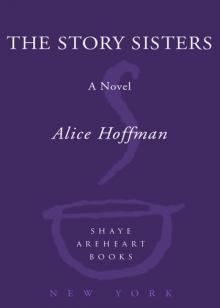 The Story Sisters
The Story Sisters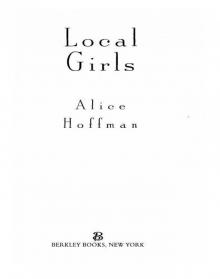 Local Girls
Local Girls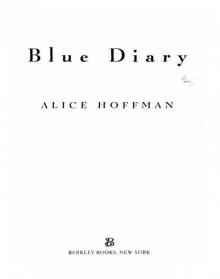 Blue Diary
Blue Diary The River King
The River King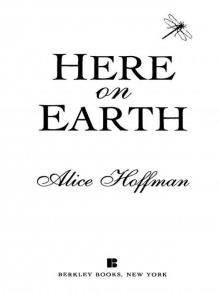 Here on Earth
Here on Earth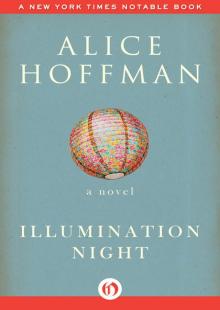 Illumination Night: A Novel
Illumination Night: A Novel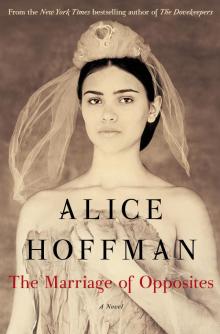 The Marriage of Opposites
The Marriage of Opposites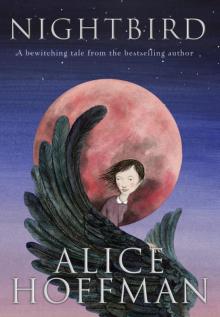 Nightbird
Nightbird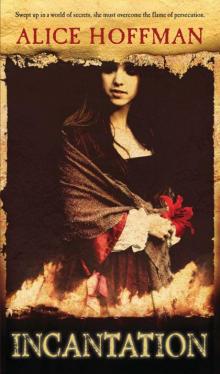 Incantation
Incantation Skylight Confessions
Skylight Confessions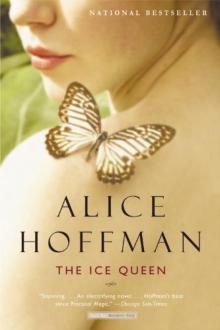 The Ice Queen
The Ice Queen Second Nature
Second Nature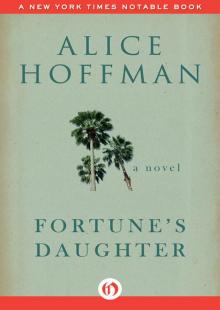 Fortune's Daughter: A Novel
Fortune's Daughter: A Novel Seventh Heaven
Seventh Heaven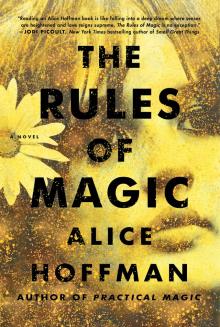 The Rules of Magic
The Rules of Magic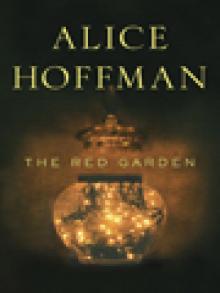 The Red Garden
The Red Garden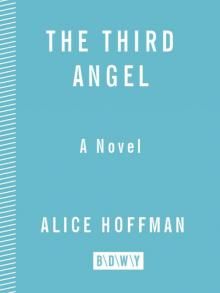 The Third Angel
The Third Angel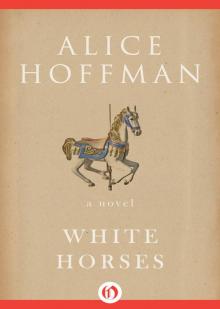 White Horses
White Horses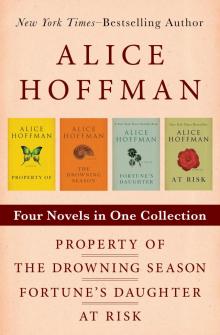 Property of / the Drowning Season / Fortune's Daughter / at Risk
Property of / the Drowning Season / Fortune's Daughter / at Risk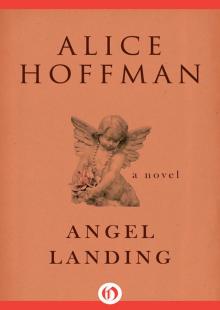 Angel Landing
Angel Landing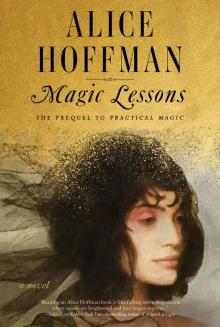 Magic Lessons
Magic Lessons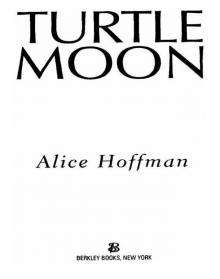 Turtle Moon
Turtle Moon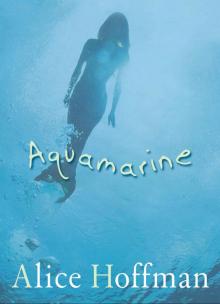 Aquamarine
Aquamarine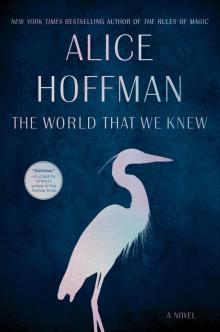 The World That We Knew
The World That We Knew Faithful
Faithful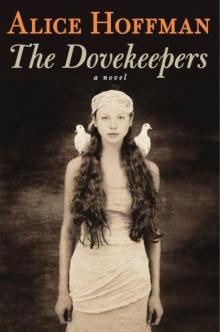 The Dovekeepers
The Dovekeepers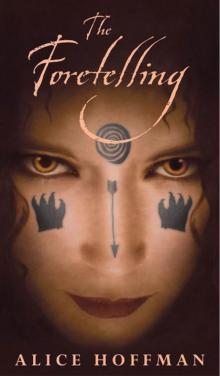 The Foretelling
The Foretelling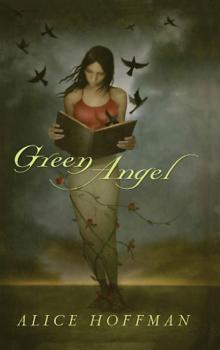 Green Angel
Green Angel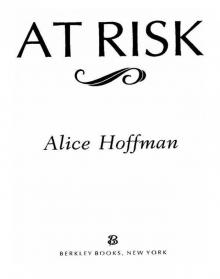 At Risk
At Risk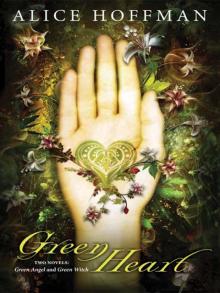 Green Heart
Green Heart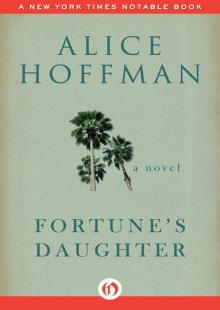 Fortune's Daughter
Fortune's Daughter Faerie Knitting
Faerie Knitting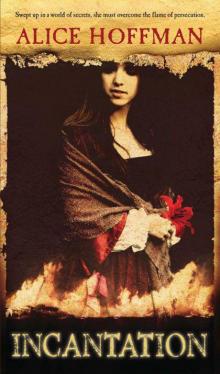 Incantation (v5)
Incantation (v5) Green Witch
Green Witch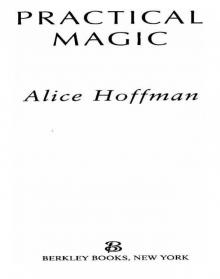 Practical Magic
Practical Magic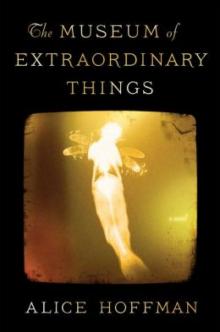 The Museum of Extraordinary Things
The Museum of Extraordinary Things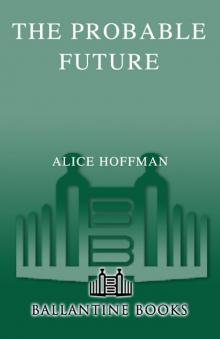 The Probable Future
The Probable Future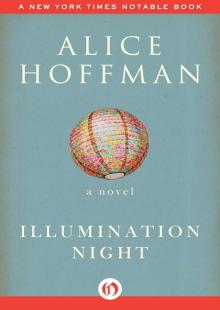 Illumination Night
Illumination Night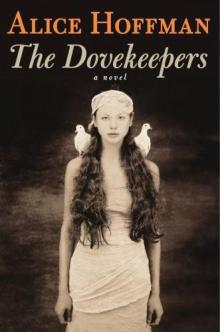 The Dovekeepers: A Novel
The Dovekeepers: A Novel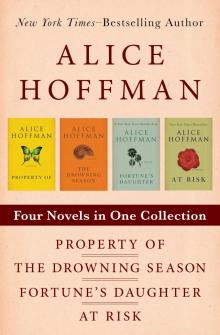 Property Of, the Drowning Season, Fortune's Daughter, and At Risk
Property Of, the Drowning Season, Fortune's Daughter, and At Risk